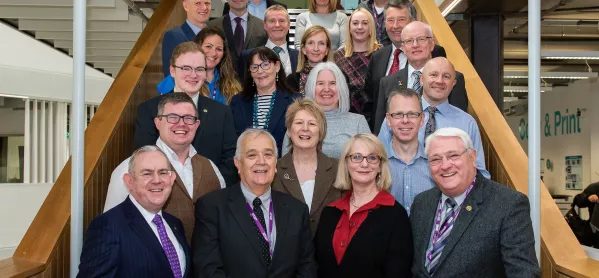It has only been six years since seven colleges in Glasgow became three, governed by a regional board.
With City of Glasgow College, Glasgow Clyde College and Glasgow Kelvin College having resisted calls to merge into a single institution, they are now collaborating on the first“integrated regional curriculum”, as well as on broader issues like student support and mental health support for staff and students.
According to regional chair Janie McCusker, Glasgow - one of only three multi-college regions in Scotland following the government’s regionalisation programme that started in 2012 - is now in a “very strong position”.
Background: ‘My role is about harnessing all that strength and talent’
Read more: Nine in 10 Scottish students satisfied with college experience
More on this: Scotland’s colleges set out five-year plan
Colleges’ impact on communities
Last month, Glasgow Colleges Regional Board published a self-evaluation report on its effectiveness, stating that “having built the governance, structures and collaborative culture the college region needs”, it was entering a more “empowered and progressive phase during which our regional approach will impact even more positively on the lives of our learners, our colleges and on Glasgow’s communities and economy”.
Increased collaboration and coordination are going to be at the heart of the region’s work over the next few years, it goes on to say. “Working more closely together, we are advancing an integrated regional curriculum, with each college offering a breadth and depth of interlinked learning opportunities, developing skills, meeting the needs of employers and key industries, and supporting the growth of our regional economy. Our collective actions are intensifying our contribution to Glasgow’s ambition to become the most productive major city economy in the UK.”
The regional board is keen to ensure that stakeholders and all parts of the three colleges are engaged in the process. “We have done more regional strategic-thinking events with boards, students, lecturers and managers,” said Ms McCusker. Topics included increasing diversity as well as supporting staff and student mental health.
“All three of our colleges are engaging in that,” she added. As a result, broader issues such as providing Esol and offering mental health support for staff and students are now tackled at a regional level. “Each college is doing that, but we want to augment that in a regional ways. All students and staff can access it,” says McCusker.
Other areas of student support, particularly for those with care experience, are also being looked at at a regional level. “This is funded with regional funding and we work collectively with the three colleges,” she explained.
“It is not just about our learners, it is also about what Glasgow as a region needs. We need to be doing that collaboratively,” said Ms McCusker.
Together with the Scottish Funding Council and Skills Development Scotland, GCRB is for the first time developing and implementing a combined curriculum-planning model. “The regional curriculum is mapped out by the colleges because we have to make sure they can deliver it. It also has to work for the region,” says Ms McCusker.
She stressed that the region’s individual colleges are all distinctly different and “sector-leading” in a number of areas - but the region is now able to capitalise on its size and scale. “We would not have been able to do this as individual institutions,” she added.




